Biofeedback and Stress Management
Understanding Stress
Often, we talk about stress as a bad thing that makes our lives hard. But, did you know that stress is important and necessary for us to function as human beings? It's true! Stress is what gives you motivation and energy to deal with challenges that you are experiencing from simple homework assignments to major life-threatening challenges that may arise.
Stress affects many of your body's regular functions. Most people experience combinations of many of the following physiological changes with high levels of stress, often referred to as "fight or flight" sensations:
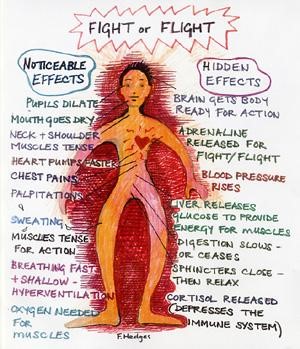
-
Increased heart rate
-
Faster, more shallow breathing
-
Increased muscle tension
-
Decreased digestion - "Butterflies" in your stomach
-
Heightened emotions, irritability
-
Sweating
-
Colder hands/feet
These physical sensations are often uncomfortable and seem to get in the way of what we are trying to do. These changes are actually your body's way of providing energy to act quickly to get away from danger or face whatever challenge is in your way.
The real problem with stress comes when we try to stop stress from happening instead of acting on the source of our stress. When we focus only on getting ourselves to feel better right away by getting rid of uncomfortable feelings, we usually overlook the actual problems that we are facing. We don't actually reduce our stress in the long run either, which means it keeps coming back and gets harder and harder to deal with because we keep trying to get rid of it.
There is a better way to manage stress! When we realize that stress is actually a helpful mechanism and not something to be afraid of or rid of, then we can turn our attention and energy toward the tasks and problems that we can act to solve. If you let it, stress will give you energy and motivation to work on whatever difficult thing you need to do.
Sometimes stress gets so high that it is hard to act and do what we need to do. In those situations, it is helpful to have some strategies for dealing effectively with what we are experiencing so that stress is at a more manageable level. There are many effective strategies that can be used. Some are helpful to do right when you feel stressed, and others are helpful to do on a regular basis to prepare you for moments of stress.
Breathing - The most cost effective tool you already have
Can something as simple as breathing really make a difference? The answer is YES! Research has shown over and over that simple breathing practices can make a big difference in dealing with stress and other emotional concerns like anxiety, panic attacks, and even depression, in addition to physical concerns like headaches, migraines, muscle tension, hypertension (high blood pressure), and chronic pain. The practice of healthy breathing affects your mental and physical health in ways that no other strategy or practice can do. It connects to so many other physiological and emotional processes within your mind and body that can allow you to see your struggles in new ways and find the ability to overcome them in new and effective ways.
You can learn healthy breathing techniques and other relaxation strategies through biofeedback training, or there are lots of helpful tips online. Check out some helpful handouts and links for learning and practicing breathing and other relaxation strategies here.
What is Biofeedback?
Biofeedback uses instruments and software to measure physiological signals from your body associated with stress such as heart rate, breathing, muscle activity, sweat, and temperature to assist you in learning important skills such as breathing, mindful relaxation, or tension reduction. Biofeedback gives information on your body's reaction when you practice these skills so you can see what your body is doing and how to enhance relaxation and healthy functioning.
Many of the natural signals in your body associated with stress and emotional struggles are often ignored until they become more intense and problematic and lead to larger problems such as chronic stress, anxiety, or pain. Biofeedback can help increase awareness of your body's functioning and, with training, improve your ability to regulate emotions and take healthy and positive steps toward improving your well-being. Through awareness and monitoring your body's reactions and with consistent practice of healthy strategies you will be able to develop effective responses to stress.
Benefits of Biofeedback Training
-
Promote relaxation in response to stress
-
Improve awareness of your mind and body
-
Reduce anxiety, stress, or depression
-
Decrease tension, pain, or emotional dysregulation
-
Improve sleep and overall health
Biofeedback Appointments
To participate in biofeedback training, please call CATS at (208-282-2130) to schedule an appointment for counseling. During this initial appointment the counselor will gather information from you and you can request to receive biofeedback training.
Biofeedback appointments are conducted in the Student Health Center building, on the 2nd floor next to the Bengal Pharmacy. Wearing of face coverings may be used to ensure a safe environment for each student and counselor. If you are experiencing any symptoms of illness, we ask that you to reschedule your appointment.
During the appointment, your counselor will review with you information about your health and stress-related concerns, explain more of the details of biofeedback training, and assist you in practicing relaxation strategies relevant to your personal needs and concerns.
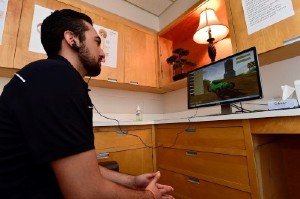
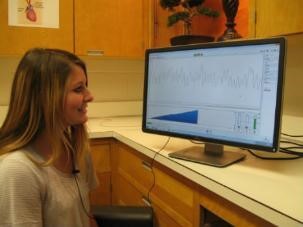
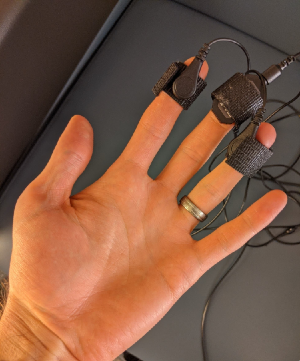
Biofeedback Technology
Pro Comp Infiniti by Thought Technology
ProComp Infiniti software is able to record heart rate, breathing, muscle activity, sweat gland activity, and skin temperature simultaneously to complete stress and relaxation profiles as well as provide in-depth biofeedback training for stress and other specific health-related concerns.
EmWave by HeartMath
EmWave measures heart rate and other associated physiological functions to assist with breathing and heart rate variability training.
Dual Drive by Somatic Vision
Practice relaxation and healthy breathing in this car-racing game to improve your ability to stay calm and concentrate in a fast-paced environment.
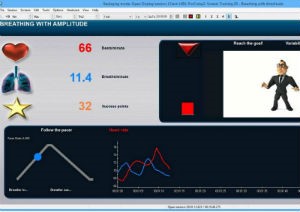
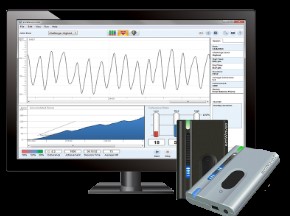

Self-Guided Resources
After discovering how your body responds to stress and learning how to control functions like your heart rate and muscle tension, you can continue to engage in exercises and hone your ability to self-regulate. Check out these handouts, audios, and apps to strengthen and enhance your skills after participating in biofeedback services.

